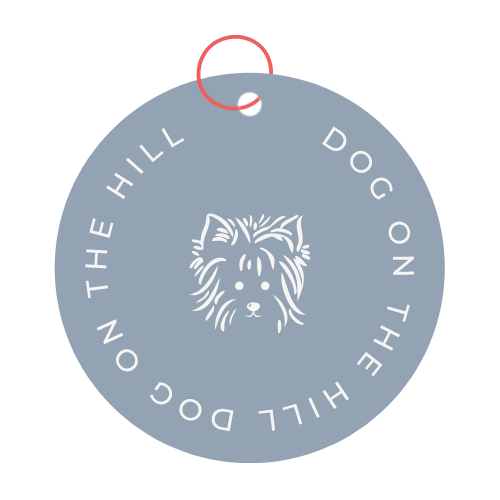Dog Behaviour Problems
Living with a fearful or reactive dog who snaps, growls or barks can be overwhelming. Dealing with his or her undesirable behaviour may intrude into all other aspects of your life which only adds to your stress when your daily walk turns into (what feels like) a military operation. I understand the challenges that living with a problem dog can bring, so let me help you.
How I can help you
We all love our dogs, but sometimes they develop undesirable behaviours.
Living with a fearful or reactive dog who snaps, growls or barks at dogs, other people or you, can be overwhelming. Dealing with their undesirable behaviour may intrude into all other aspects of your life. The quiet stroll that you wanted to take with your dog turns into a military operation as you attempt to predict and manage every possible encounter. This can be extremely upsetting, stressful and frustrating and can damage that precious relationship between owner and dog.
I will explain how your dog thinks and (using ethical and up-to-date, scientifically proven techniques) will put a training and behaviour modification plan together that will set you and your dog on the path to changing their emotional state. It’s important to stress however, that there are no quick fixes and no magic wands. Any change in behaviour will take time, patience, consistency and commitment from you. We can only go at your dog’s pace, but I will be on hand support and guide you.
What is behaviour modification?
Behaviour modification involves identifying the triggers that lead to your dog’s undesirable behaviours. Then, using scientifically-based techniques, such as positive reinforcement (rewarding the good stuff) and desensitisation (gradually exposing the dog to triggers in a controlled way), we will help your dog develop healthier, more appropriate responses. Through structured training and behaviour modification, dogs can learn to replace negative reactions with positive, manageable behaviours, leading to a more harmonious relationship.

Work with me in North London
(or online)
As a local dog trainer, I can often be found training in Highgate Woods, Parkland Walk, Muswell Hill, Kenwood, Alexandra Palace, East Finchley, Highbury and Islington, Finsbury Park, Hampstead and surrounding areas in and around North London.
Since March, 2020 my business has successfully evolved to include live, online training and consults via Zoom. It’s an option for you to consider, especially if your dog finds a stranger in their home stressful. If you would like a live consult via Zoom, please get in touch.
What People Are Saying
“Jane really surpassed all my expectations and went above and beyond to try and find the reason for Lola's difficult behaviour. From about 9 months, she started to display signs of aggression which over the next few months got worse. Lola’s behaviour is 99% better and I am so grateful to Jane for her care and consideration in advising me.”
— Talia and Lola
“From the moment Jane walked in the door we knew we had made the right decision in choosing our dog behaviour specialist. From word-of-mouth recommendations from fellow Highgate Wood dog-owners, we had no doubts that Jane could assist us in helping Ruby. Jane has shown us easy to follow steps in eliminating certain issues to make us all happier.”
— Rima & Ruby
“I really had no idea how to help Ruby who has always been a slightly nervous dog. Jane immediately identified her behaviour issues and set up a programme of training and support targeted to meet Ruby’s individual needs. Jane’s methods work so give her a call you won’t be disappointed.”
— Joan and Ruby
Behaviour Consultations
Behaviour Support Package £440
Dog behaviour problems can be emotionally draining, Let me help you get your relationship with your dog back on track.
This includes:
90 minute Behaviour Consult
Follow-up treatment plan (this will be emailed to you)
3 x one hour follow-up visits (within two months of my first visit).
Access to me via telephone/ email from the time of the initial visit.
Please note: Behaviour clients will only be seen after a vet referral
Frequently Asked Questions
-
Our initial behaviour consult will last about 2 hours and will take place in your home (unless this is too dangerous or stressful for your dog). During our initial consult we will discuss your dog’s history, the problem behaviour and how we can begin to make life easier for both of you.
I will follow up my visit with a written plan and instructions so that you don’t feel that you’ve been bombarded with information that you can’t remember or follow. In our follow-up sessions we will catch up on what you’ve managed to achieve and if appropriate work together with your dog.
My aim is to provide on-going advice, instruction and support throughout this process. My behaviour package includes our initial consult plus three, follow up sessions lasting no longer than an hour each.
-
Yes. Visiting your vet for a thorough health check before we meet eliminates any possible physical or medical causes for your dog’s problem behaviour. Just like humans, pain or discomfort makes us behave differently and we want to ensure that your dog is in good health or we wont be able to help them.
-
The basis of any good behaviour modification plan is one that causes no harm or continuing distress to either the dog or you, while ensuring that any protocol will fit in with your lifestyle and capabilities. We will also discuss good management strategies that will hopefully prevent your dog from continually being put in a situation that makes them practise the undesirable behaviour(s) because it’s important to avoid the triggers that make them occur.
-
Every dog and the situation in which they live is unique and some problems are more complex than others. Emotions aren’t under conscious control, but I hope that with good management and a good plan, I will be able to make your life and that of your dog happier.
-
Reactivity towards people (both on and off lead)
Reactivity toward dogs (both on and off lead)
Fearfulness, anxiety and nervousness
Fear of loud noises
Excessive chewing
Toilet training
Guarding behaviour
Excessive mouthing







